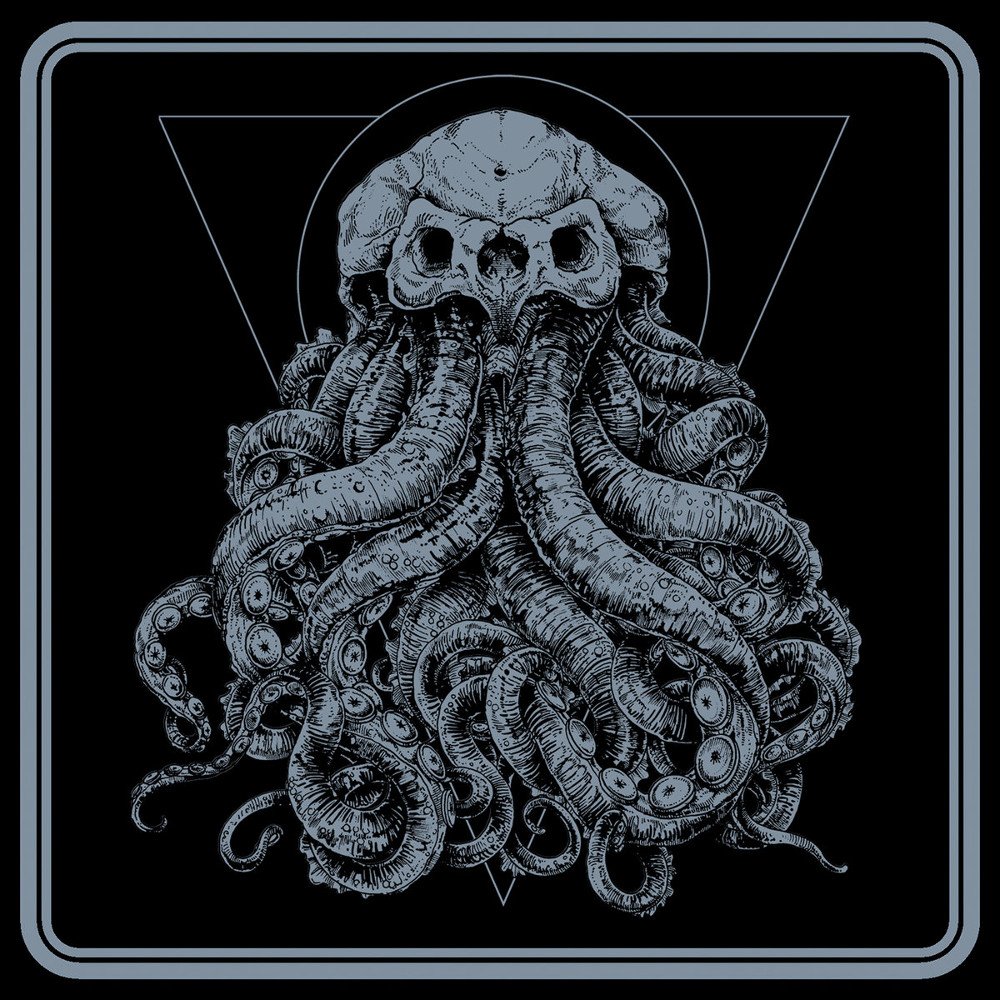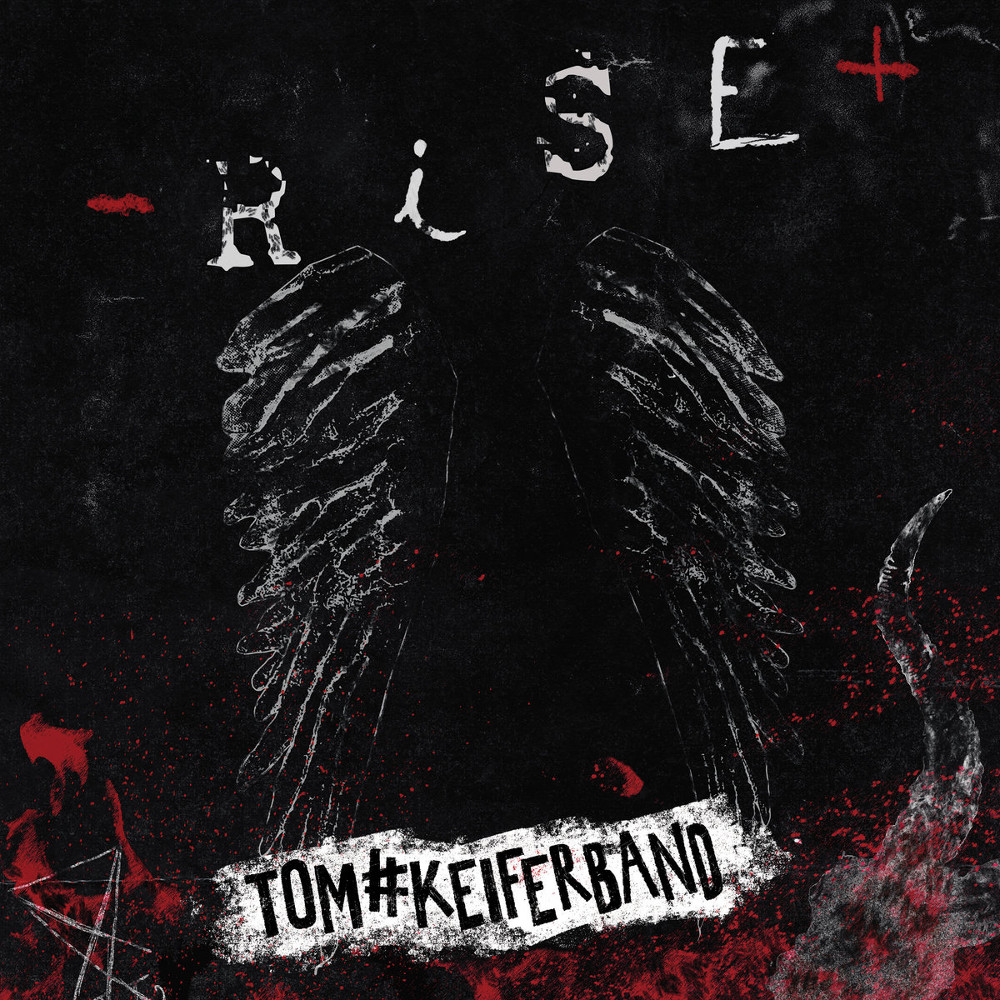 |
Country: Poland
Style: Psychedelic Stoner/Doom Metal
Rating: 7/10
Release Date: 1 Jan 2020
Sites: Bandcamp | Facebook | Instagram | Metal Archives | YouTube
One of the countries that surprised me in 2019 by the quality and diversity of its music was Poland with bands as varied and impressive as Monasterium, Velesar and The Matter of A, so I'm eager to keep on exploring Polish music in the new year. Here's the second album from Poznań's Tortuga, who describe their sound as "psychedelic stoned doom". It's certainly a lot more rooted in psychedelic rock and stoner metal than Monasterium, but it's still doom metal at heart.
Deities isn't a concept album per se but it's themed around the elder gods of cosmic horror legend H. P. Lovecraft and, as the Archpriest of Chaos in the First United Church of Cthulhu, I salute that and I salute the glorious cover art by Too Many Skulls which is absolutely gorgeous.
A few other aspects became quickly obvious as common factors.
One is that a majority of the album is instrumental. Technically, only two of seven songs on offer are instrumentals (Shining Sphere and Defective Mind Transfer), but there really isn't much singing going on. Esoteric Order is seven and a half minutes long but it only contains four lines of lyrics. The others have more, Galeón de Manila even unfolding in Spanish, but not one of them has much. The two vocalists are also the two guitarists and it's clear that they think of themselves as guitarists first. It's actually possible that there's a higher word count in the samples and narrated intros than in the lyrics.
Another is the prominence of the bass guitar. This first manifests during a glorious intro to the first track proper, Esoteric Order, which is as jaunty as stoner doom gets. It's guitar free for a whole minute and really makes a strong impression. The bass thankfully never goes away but it returns with a vengeance on Black Pharaoh II, surely the standout track here. Most of the time when I mention the bass in album reviews it's to complain that it isn't audible or to be happy that it is. This is my second review this week alone to compliment the fantastic bass work, here delivered by someone by the name of Heszu.
The third is less surprising and that's that this is a heavy album. Tortuga play monolithic doom in that it's very heavy but also uncomplicated with an avoidance of flourishes. The guitars are particularly economical, playing as few notes as needed to generate the necessary doom and despair. While there are nods to psychedelic rock and stoner metal, not least in the fuzziness of the guitars, the result is doom, slow and heavy with wailing solos.
For Elizard is particularly stupid but it's a lot of fun too, given that it introductes us to Yig, a snake god, who Tortuga define as completely hating Godzilla, "this other fucking lizard". Vocals are delivered in gaps between minimalistic riffs or over another gorgeous bass run. The song is solid, as dumb as it is, and I can't resist a chorus that reads, "Yig hates Godzilla. Fuck you, Godzilla!"
Doom metal just can't succeed without riffs and the riffs here get more and more crushingly heavy as the album runs on. For Elizard has a very nice one, but there's a heavier one in Defective Mind Transfer and then Black Pharaoh II ups the ante yet again. Three times. Midway through, the band add a solo onto the riff and it seems as delicate as the foam on top of a tsunami wave that's already above us and ready to crash down. However, Black Pharaoh II also features an amazing section where the drums get all jaunty midway and rework the perspective of the riffage magnificently.
The first time the riffs really calm down is for Trip, which is the odd man out on this album for a few reasons, not least that it's a lot quieter and subdued in the mix. It's also the one track that's more psychedelic than it is doomy, perhaps appropriately given its title.
And then there's Galeón de Manila, the inexplicable final track, which takes longer to end than the third Lord of the Rings movie. Fundamentally, it's a five minute song with a two minute intro and, without any attempt to kid, a nine minute outro. There are bands who spend their careers building up their skillset until they can finally write a nine minute epic and Tortuga throw a nine minute outro onto this song like it's nothing, which it mostly is.
It made me wonder if the album was written live and recorded chronologically because this outro is the sort of thing that probably felt like a great idea during the trip of the previous track. If the band had cut ten whole minutes of soft but escalating pulses out of this one, they'd still have racked up a respectable three quarters of an hour, all of which would have had purpose. I have no idea why they went nuts at the end here.
Ignoring that, this is a solid album. It's as simple and straight forward as psychedelic music ever gets, anchored by cavernous riffs and hindered by few words. I like it, though I like its bass guitar even more.








